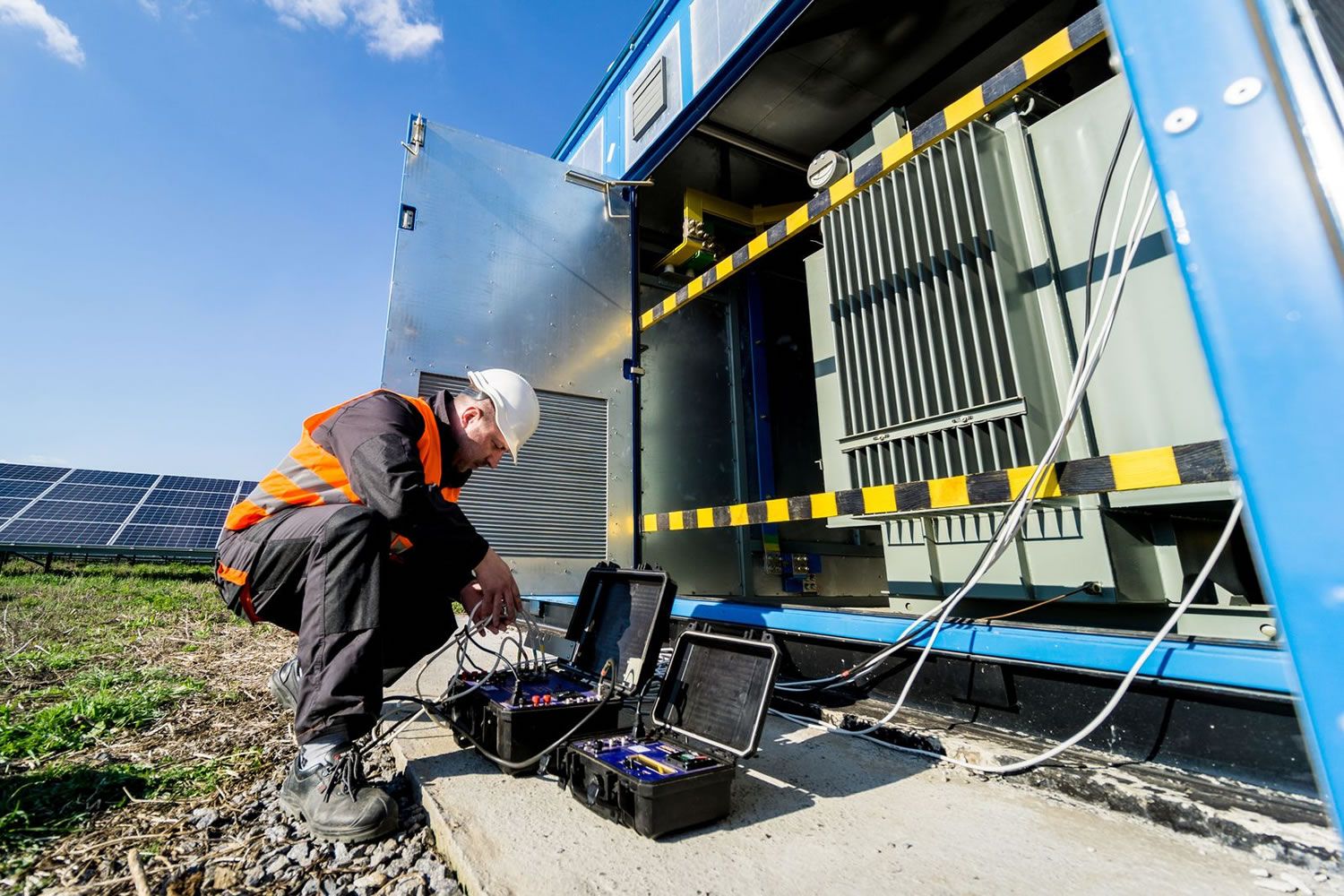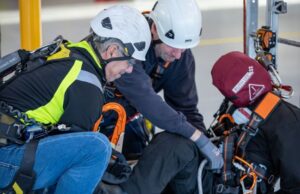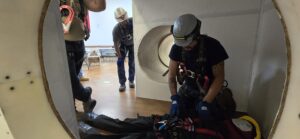Upskilling for Field Technicians in Electrical Energy Manufacturing: A Vital Strategy for 2025
As the global energy sector continues to transition toward renewable and sustainable solutions, the demand for skilled field technicians in electrical energy manufacturing has surged. In 2025, it is no longer enough for field technicians to possess basic certifications and qualifications. The complexity of modern energy systems and the fast pace of technological advancements require technicians to continually upskill, enhancing their expertise beyond foundational training. This article explores why upskilling is essential, the specific training requirements for electrical safety, and how organizations like STL USA are supporting the development of a future-ready workforce.
The Evolution of the Field Technician Role
Field technicians in electrical energy manufacturing are responsible for installing, maintaining, and repairing critical components of energy systems, including solar arrays, wind turbines, and substations. The industry’s rapid growth and technological innovation have expanded the scope of their responsibilities. Technicians must now navigate challenges such as:
Integration of Advanced Technologies: Modern systems include complex software, automated controls, and high-voltage components.
Evolving Safety Standards: As systems become more sophisticated, the associated risks—such as arc flash, electrical shocks, and equipment failures—demand advanced safety protocols.
Sustainability Goals: The shift toward cleaner energy sources has introduced new materials, designs, and operational practices, requiring continuous learning.
Core Certifications: A Starting Point
Basic certifications are essential for anyone entering the field, laying the groundwork for safety and operational competency. Key certifications include:
OSHA 10 or 30-Hour Training: Covers general workplace safety practices and hazard recognition.
NFPA 70E Certification: Focuses on electrical safety standards, including the safe handling of energized and de-energized systems.
Global Wind Organization (GWO) Basic Safety Training: Includes first aid, fire awareness, manual handling, and working at height.
While these certifications are critical for entry-level roles, they represent only the baseline of what field technicians need to thrive in a dynamic industry.
Why Upskilling is Essential
Basic certifications equip technicians with foundational knowledge, but they often leave gaps in practical skills and advanced competencies. Upskilling addresses these gaps, benefiting not only the individual technician but also their employer and the industry as a whole.
Benefits for Technicians
Enhanced Safety: Advanced training minimizes the risk of accidents by teaching technicians how to handle complex systems safely.
Career Growth: Upskilling opens doors to specialized roles, such as high-voltage specialists, site supervisors, or trainers.
Job Security: Technicians who stay current with industry advancements remain valuable assets in an evolving market.
Benefits for Employers
Improved Efficiency: Highly skilled technicians can troubleshoot and resolve issues more quickly, reducing downtime and operational costs.
Reduced Liability: Comprehensive safety training lowers the likelihood of workplace accidents and associated legal risks.
Workforce Retention: Offering training programs demonstrates a commitment to employee development, fostering loyalty and reducing turnover.
Benefits for the Industry
Scalability: A well-trained workforce enables the rapid expansion of renewable energy projects.
Innovation: Skilled technicians contribute to the development and implementation of cutting-edge technologies.
Sustainability: Advanced training ensures that energy systems are maintained and optimized for long-term performance.
The Role of Specialized Training
STL USA is a leading provider of specialized training programs that align with the needs of the electrical energy manufacturing sector. Our courses are designed to build skills and competencies at every stage of a technician’s career, from entry-level certifications to advanced technical training.
Key Training Programs
QEW NFPA 70E Electrical Safety Training
Focuses on arc flash risk assessment, proper use of personal protective equipment (PPE), and safe work practices for high-voltage systems.
Applicability: Essential for technicians working on energized systems, ensuring they can identify and mitigate electrical hazards.
GWO Control of Hazardous Energies
Covers lockout/tagout (LOTO) procedures, energy isolation, and risk assessment.
Applicability: Critical for maintaining and servicing energy systems, preventing accidental energy release.
BOP Substation and PMT Switching Training
Provides knowledge of substation maintenance and switching operations.
Applicability: Enables technicians to manage the interface between energy systems and the grid.
Advanced Troubleshooting and Maintenance
Teaches in-depth diagnostics for turbine control systems, solar inverters, and other complex components.
Applicability: Equips technicians to handle advanced repair tasks, reducing reliance on external specialists.
Maintaining and Refreshing Core Skills
In addition to upskilling, technicians must regularly refresh their core certifications to stay compliant with industry standards. For example:
First Aid and CPR: Maintaining proficiency ensures technicians can respond effectively to emergencies.
Fire Awareness: Regular training reinforces knowledge of fire prevention and suppression techniques.
Manual Handling: Refresher courses reduce the risk of musculoskeletal injuries.
STL USA incorporates these refresher modules into their programs, ensuring that technicians remain competent in the basics while advancing their specialized skills.
Adapting to Industry Changes
The clean energy sector is evolving rapidly, driven by technological innovation, regulatory updates, and sustainability goals. Technicians must adapt by incorporating new training elements, such as:
Digitalization: Learning to operate and troubleshoot smart systems and IoT-enabled devices.
Sustainability Practices: Understanding the environmental impact of energy systems and implementing green solutions.
Global Standards: Aligning with international safety and performance benchmarks.
STL USA’s ethos emphasizes creating development pathways that address these changing demands. By tailoring training programs to the specific needs of technicians and their employers, they ensure that the workforce remains future-ready.
Building the Workforce of the Future
Investing in upskilling is not just a strategy for individual success; it is a cornerstone of industry growth. As the energy sector strives to meet global demand for clean and reliable power, a skilled and adaptable workforce is essential. STL USA’s commitment to building competencies through personalized training pathways supports this vision, enabling:
Workforce Resilience: Technicians equipped with diverse skills can adapt to new challenges and opportunities.
Operational Excellence: Advanced training enhances the quality and reliability of energy systems.
Sustainable Growth: A future-ready workforce accelerates the transition to a cleaner, greener energy landscape.
Conclusion
In 2025, upskilling is no longer optional for field technicians in electrical energy manufacturing—it is a necessity. The benefits extend beyond individual career advancement, contributing to safer workplaces, more efficient operations, and a stronger, more sustainable energy industry. Organizations like STL USA play a pivotal role in this process, offering specialized training that empowers technicians to excel in their roles and meet the challenges of a rapidly evolving sector.
By prioritizing continuous learning and development, the energy industry can build a workforce capable of driving progress and innovation, ensuring a brighter and more sustainable future for all.
Want to learn how STL USA can help your organisation achieve operational excellence?
Click the button to get started




